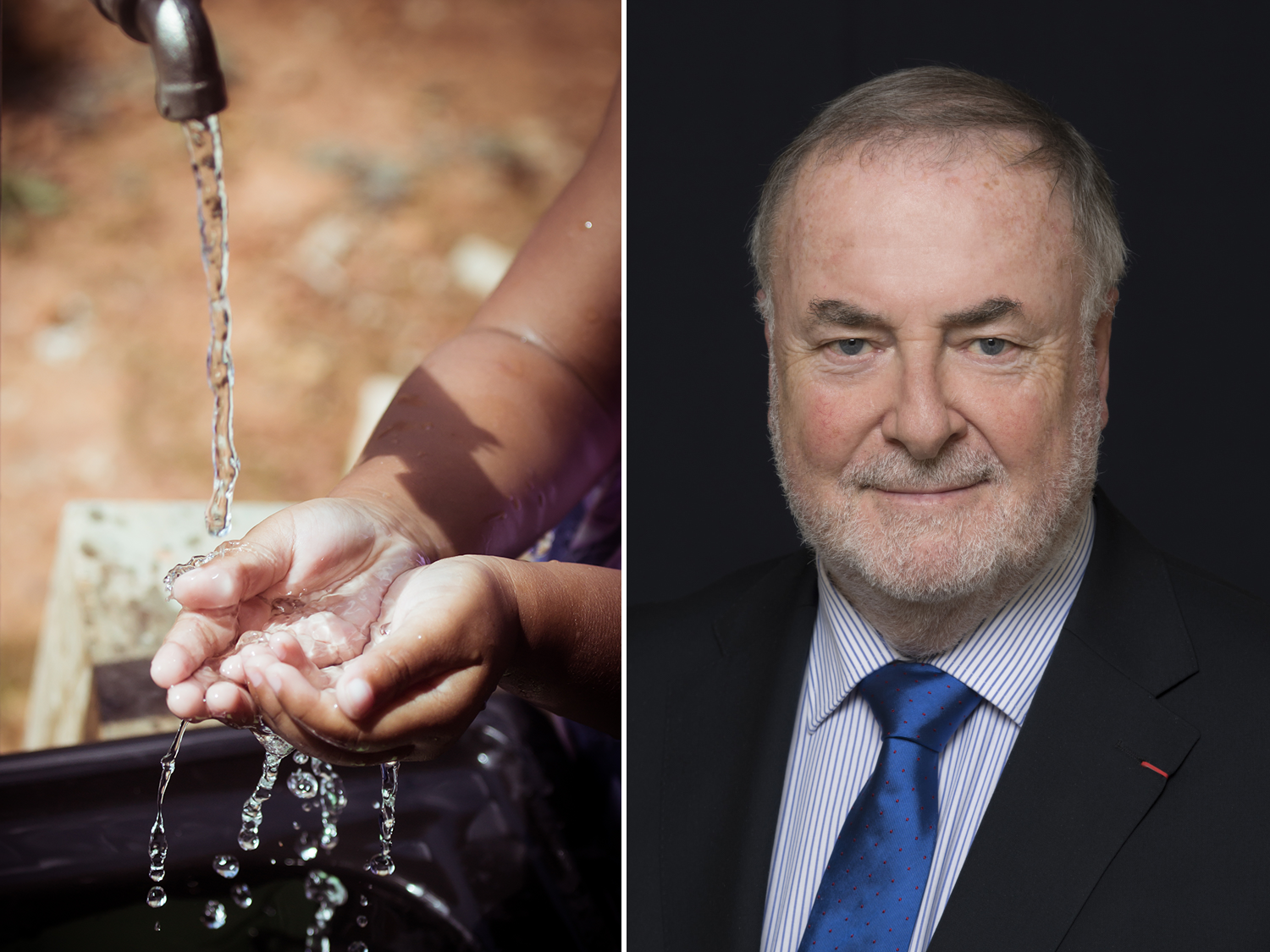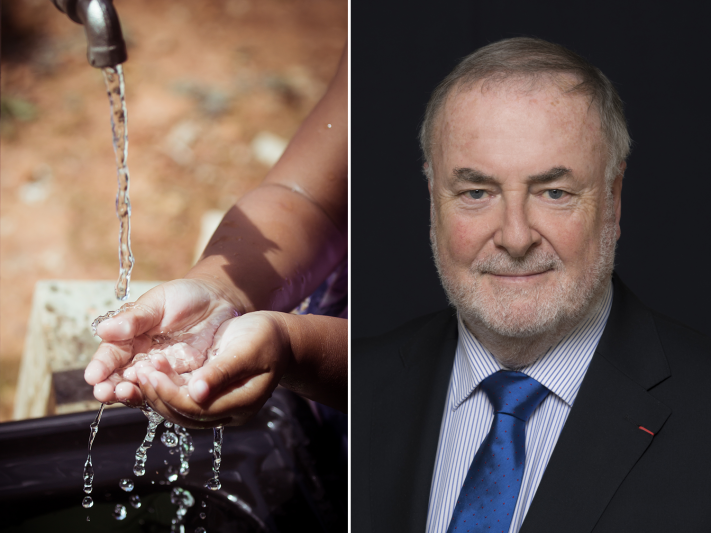“Water is the life insurance of mankind”, Interview of Loïc Fauchon, President of the World Water Council, La Provence, 22 March 2020

On the eve of World Water Day, as the COVID-19 pandemic is spreading relentlessly, the President of the World Water Council is calling on both governments and citizens to preserve and share our most precious resource.
La Provence: What is the World Water Council’s position on this exceptional and unsettling health crisis?
Loic Fauchon: To fight this coronavirus, we must raise awareness on the importance of water to ensure, among others, good hand and body hygiene, especially in countries where people live with less clothes, such as in Africa. We must then send a message to all governments that we must share water and enhance its availability so that it is not always the same people who foot the bill, i.e. the less well-off. We must also make sure that creativity takes over and that States act swiftly with concrete solutions to make as much water available as possible, for example by ensuring it is free for a certain amount of time. We’ll do the accounting afterwards…
LP: Do you fear that the coronavirus crisis will cover up other facts, which are just as disastrous?
LF: Let’s be realistic. Covid-19 is causing thousands of deaths, and counting, throughout the world, but let’s not forget that 350,000 children under the age of five die each year of diarrhoea due to contaminated water. Our responsibility is to say: Ok, the virus exists, but water-related diseases such as malaria, cholera or dysentery kill nearly two million people every year. This reality occurs because we don’t fulfil our duty and because guns take priority over taps. In Nairobi for example, 1.5 million people live in the biggest slum on the planet, in dire insalubrious and overcrowded conditions. How can we even believe that they will be able to fight the coronavirus…?
LP: What can the World Water Council learn from this crisis?
LF: In the current emergency, the world must work on producing medicines and vaccines, but in the long run, water is still the life insurance of mankind and nature. We will therefore continue to tirelessly make our voice heard for water preservation and availability. And we are very happy that the World Conservation Congress will be held in Marseille, because it is one of the greatest gatherings for the defence of biodiversity and therefore of water.
LP: What are the other topics that the World Water Council works on?
LF: We make progress on water security so that people can access clean water in sufficient quantity. But we also work on how to store water which is a growing problem because of climate change and the increase in demand. We need to radically evolve from the concept of dams to the concept of aquatic reserves, which will protect the resource but also fauna and flora – such as the Realtor basin (Translator’s note: an artificial lake and nature reserve) near Marseille. In the future, there will be more basins like the Realtor than Serre Ponçon (Translator’s note: a dam in the French Alpes). Another one of our fights is to stop the opposition between rural and city dwellers. These two spaces should be united. A harmonious world could not exist without farmers.
Interviewer: Philippe Gallini

